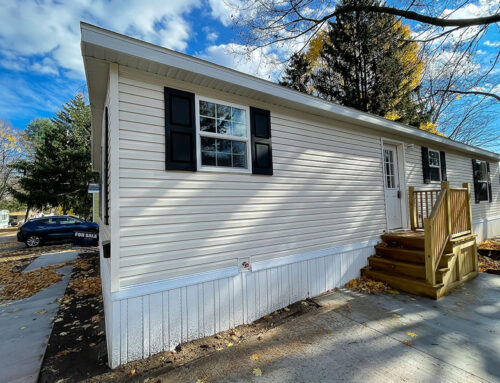My friend, Susan, showed me an article about a recent program rolled out by the Albany County Land Bank Corporation (ACLB) in which vacant lots were being made available for $100 to local residents. This piqued my interest. Though my business centers on buying and renovating a property, then selling it for a profit, the article got me wondering if other properties at the Albany County Land Bank were that cheap. As a would-be investor, Susan was wondering the same. If so, she and her husband hoped to use the ACLB to find fixer upper homes for sale and kick off their real estate portfolio as soon, and as cheaply, as possible.
I have to say I’m glad Susan came to me. I know how to find a great investment property without having to go through the Albany County Land Bank and wanted to advise her accordingly. But I’m also as curious as the next guy and like to stay current on local real estate news. So we took a look at the Land Bank’s website and made a couple of inquiries to get more information. It turns out that most properties are not $100, though I was reminded why many real estate investors still seek to buy through the ACLB—and why they might want to reconsider this business practice.
Benefits of Buying Properties from the Albany County Land Bank
Established in 2014, the ACLB purchases vacant and abandoned properties with grants from the City of Albany, Albany County, and the New York State Attorney General’s Office. It then redistributes these properties to investors for demolition and/or renovation in an effort to improve and stabilize empty lots, distressed houses, and troubled or transitioning neighborhoods. Monies received from ACLB sales go to the Albany County tax rolls.
Though few properties are actually available for $100, the low cost of purchasing vacant lots and houses from the Land Bank is the main reason it still appeals to real estate investors. As every investor knows, the cheaper you can buy now, the better your chances of seeing good returns later. And for new investors who want to start house flipping, but have limited experience or access to funds, the allure of a low-priced fixer from a government program can be especially strong. But it can also be problematic if you don’t know what you’re really getting into.
Potential Pitfalls of Buying Albany County Land Bank Properties
To start, you’ll need to fill out an application and pay a small fee of $30 for an individual and $50 for a company. Be sure to list the properties you’re interested in buying and to provide a redevelopment proposal for each, including a step-by-step plan for the rehab and all associated costs. You can then email, mail, or drop off the application and, depending on when you submit, expect to hear something back within a month.
It sounds pretty simple, even exciting, but there are a few catches you need to be aware of. First, before reaching the Albany County Land Bank Board of Directors for final approval, your application has to pass review from the Land Bank staff, the Community Advisory Committee, and the Disposition Committee. At each stage, you may be contacted for more information before your application receives a recommendation or denial.
Second, properties are distributed on a first-come, first-served basis, with special consideration given to buyers who live on the same block as a subject property. This is the reason why the ACLB encourages you to list multiple properties on your application, not because you can buy more than one at a time. Getting approval to purchase two or more houses is not unheard of, but it is rare.
Third, the Albany County Land Bank will perform a credit check, so be prepared to have your creditworthiness, credit score, and work history scrutinized. It’s also important that you have no outstanding taxes due or any code violations on your record. These items, in particular, are grounds for immediate rejection of your application.
Assuming you make it through the application process and are approved to purchase one of the properties on your list, the sale can move forward. However, there are plenty of reasons why it shouldn’t—and why you should rethink applying at all.
- Cost. In addition to the purchase price, you’ll assume responsibility for all closing and other costs associated with a property. This includes record and deed preparation fees, inspection reports, surveys, abstracts, title insurance, and attorney fees. And unlike other county land bank properties, the ACLB does not cut the red tape to sell its real estate free and clear. So you’ll also be liable for unresolved property taxes, liens, unpaid water and utility bills, back rents, and any other fines or fees that come up before or after closing.
- Risk. Vacant and abandoned properties can present a high degree of risk for investors, but those acquired through the Albany County Land Bank may be especially risky. These properties, which are neglected at best, have often been sitting for so long and fallen into such disrepair that they are considered a serious liability. Of course, the poor and sometimes dangerous condition of the houses is why they get consumed by the program in the first place—and why they’re priced below market value. Except taking these distressed homes from substandard to safe can take so much cash that even a cheap purchase won’t ease the risk to your budget or potential returns.
- Time. Expect to adhere to and even wrestle with project timelines imposed by the ACLB. Buyers are given six to 12 months to complete a renovation, but only 30 days to bring the property back to code. These limits are somewhat negotiable but are subject to approval by the Board of Directors. Consequently, if you think you need more time for any stage of the rehab, it’s good to ask early and better to work quickly. Of even greater concern for buying an investment house through the Land Bank is the restriction placed on selling. Unless written consent is given by the Board, buyers cannot sell or transfer the property for five years from the date of purchase. So if you’re in the business of buying, renovating, and selling houses, not being able to sell is not going to work.
It appears that the stringent rules and requirements may not be working for a lot of people. Of the 630-plus properties the ACLB has acquired in the last few years, only 200 have been improved thus far. In light of these numbers, Susan also started to doubt that a land bank investment property would work for her and asked if I had any investment property advice for buying in Albany. I sure did.
Where to Bank on the Best Properties
I told Susan that getting great leads on real estate investing opportunities works like a charm as an independently owned and operated HomeVestors® franchisee. As a franchisee, she could expect distressed homeowners to come to her before they lose their homes or have to abandon their properties. This is, in part, thanks to HomeVestors’® nationally-recognized “We Buy Ugly Houses®” ad campaign, which has helped HomeVestors® franchisees like me buy over 140,000 houses since 1996, already. I told her, there’s no better place for starting a career in real estate investing—and no better way to help your Albany neighbors.
Wondering what franchise opportunities are available? Inquiry today!
Each franchise office is independently owned and operated.
Contact
"*" indicates required fields





